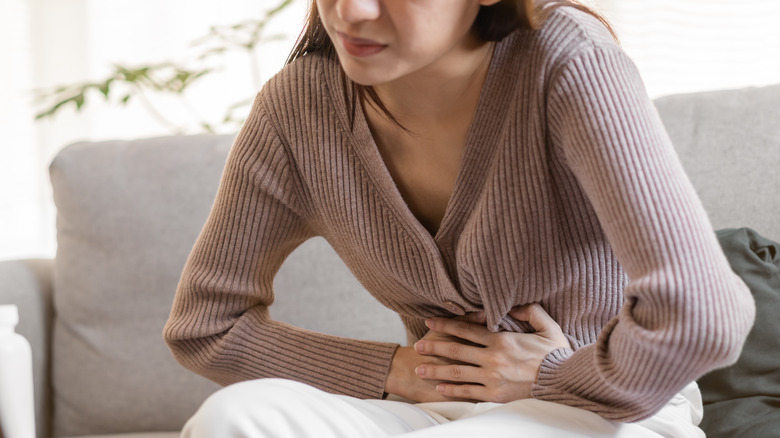What Really Happens To Your Body When You Get Salmonella
Salmonella poisoning is one of the most common types of food poisoning caused by bacteria. According to the Centers for Disease Control and Prevention, around 26,500 people in the United States are hospitalized with salmonella poisoning every year. Caused by eating food contaminated with salmonella bacteria, salmonella poisoning affects the small intestine and can result in a number of unpleasant symptoms (via Healthline).
You can get salmonella poisoning by consuming raw or undercooked poultry and eggs, unpasteurized milk, and contaminated fruits and vegetables. Other factors that increase your risk of encountering the bacteria and developing salmonella poisoning include having certain pets like reptiles and birds, living in a dorm or nursing home, or traveling to a developing country with poor sanitation.
Symptoms of salmonella poisoning can develop within 72 hours of consuming contaminated food or drinks, and can last up to 48 hours. Common symptoms include fever, chills, diarrhea, nausea, vomiting, muscle pain, stomach cramps, bloody stool, and dehydration.
How to prevent salmonella poisoning
The best way to prevent salmonella poisoning is by washing your hands before and after preparing and eating food, and after any other potentially unsanitary activity. This includes touching your pets, changing a diaper, using the bathroom, and gardening (via Medical News Today). Washing your hands with soap and warm water will get rid of any harmful germs and bacteria lingering on your skin.
It's also important to properly handle your food when storing and preparing it. For instance, you should always separate raw foods from cooked foods. Storing them on different shelves in the refrigerator, as well as washing and cooking them separately, can help prevent cross-contamination.
Another way to prevent salmonella poisoning is by washing your foods thoroughly before cooking and eating them. While this should get rid of most of the bacteria found on eggs and meats, salmonella can still linger on your food. That's why it's important to cook your foods thoroughly, as well.


